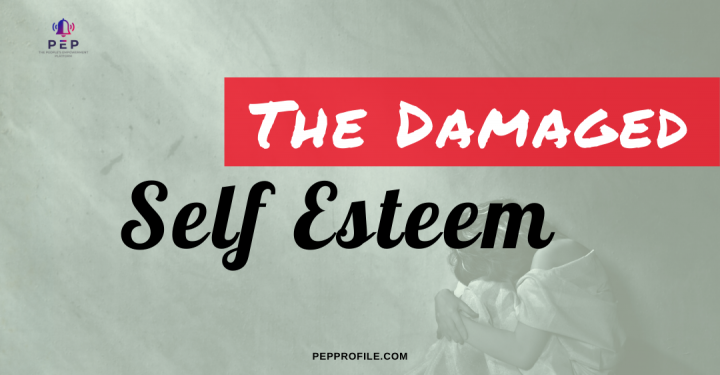Member Sign In
Login with email and password
No account yet? Register Now
I’m about to walk you through five symptoms of an inferiority complex, their causes as well as evidenced-based tips on how to improve self-esteem.
At the core of an inferiority complex is a concern about how we compare to others. Now, to an extent, being curious about how we measure up in this way is normal and healthy.
But when comparison consistently pervades our thoughts, it may be symptomatic of chronic low self-esteem — the term psychologists use to refer to an inferiority complex.
Let’s now dive in and consider five common symptoms and causes of an inferiority complex and stick around to the end to learn we can improve our self esteems.
The first symptom of an inferiority complex is a compulsion to compare oneself unfavorably against others.
Theodore Roosevelt once said that “Comparison is the thief of joy.” While this may be true, to not compare ourselves to others is to live life in a bubble, as comparison is a function of our society, its culture and its institutions.
Comparison is built into the school grading systems we are subject to as children.
Similarly, they are a feature of our climb for professional success as we compete to attain positions of status in our organizations.
According to psychologists, to deny the pervasiveness of comparison is to not only deny reality but deny our human instinct.
This is because the urge to compare ourselves with others is rooted in a survival instinct known as self-other mergence.
In the wild, this instinct helped our ancestors to identify strengths and weaknesses within a group and facilitate the allocation of essential tasks, such as building shelter and hunting.
Unlike in earlier societies, where people were likely to find their sense of identity and worth within a tribe or collective, individualism is a core tenet of today’s Western societies.
This means that rather than boosting collective strength, self-other comparisons often end up harming individual self-worth.
To the person with the inferiority complex, this means they are continually fumbling to find self-esteem by ranking themselves against others.
This is naturally a losing game when, in most situations, there will always be someone in the world doing better than you.

The second sign of an inferiority complex is a false sense of superiority. The person with an inferiority complex often feels forced to place what little self-worth they have in the few things they can control.
This can be fancy cars, physical appearance and other symbols of status or wealth.
They may then feel the need to brag about these things and gain external validation to temporarily boost self-worth and make up for all the things under the surface that they cannot control.
In cases where a person suffering from an inferiority complex attains some level of success in a particular domain, this sense of superiority may evolve into what expert on personality disorders, Professor Preston Ni, refers to as acquired situational narcissism.
Situational narcissism takes hold when someone who once behaved reasonably changes to become egocentric and boastful as a consequence of acquiring wealth, status or prestige in a particular domain.
Outwardly, this can manifest as a false sense of superiority. According to Professor Ni, however, these people “still possess common human frailties such as self-doubt, insecurity, and inadequacy — perhaps even more than most, as they work hard to maintain their false, superficial exterior.”
This means that that proud egotist in your life may be nursing an inferiority complex under the surface.
The third symptom of an inferiority complex is an extreme sensitivity to criticism. Those with an inferiority complex struggle to separate their outputs (i.e., their performance) from their sense of worth.
In other words, they perceive themselves as only as good as what they can produce.
Therefore, upon receiving criticism — even that which is intended to be constructive for their work — someone with an inferiority complex may find themselves feeling incredibly wounded.
Usually, the source of this sensitivity can be pinned down to interactions with parental figures during childhood.
Early caregivers can have an enormous impact on whether a sense of inferiority is exacerbated or softened.
According to Dr. James Maddux, psychologist and author of the book Subjective Well-Being and Life Satisfaction, a child whose highly critical parent repeatedly says things like, “you’re a klutz,” or “you never do anything right” may internalize those admonishments so completely that they carry them into adulthood, making them especially sensitive to criticism.
Even less overt, yet equally as devastating, can be when a parent’s expressions of love or pride are conditional on a child’s high performance. Imagine a parent who observed their child’s dedicated efforts training for a race.
If the parent only expressed approval of the child’s efforts upon that child winning the race, but not for their hard work despite losing.
That child would learn that love, pride and approval are available to them only when they outperform others.
Needless to say, this kind of early conditioning can create a breeding ground for inferiority later in life and make receiving negative or even constructive feedback feel intolerable.
Number four is cycles of procrastination and perfectionism.

One study in the Journal of Personality and Individual Differences found that dysfunctional procrastination behaviors can be predicted by low self-esteem. This is because those with low self-esteem (i.e., he or she with an inferiority complex) often view their value as being solely dictated by their ability to perform tasks better than others.
Therefore, by avoiding task completion through procrastination, self-esteem is never tested and wounded.
Once the person with an inferiority complex does eventually commence a task, they will attempt to mold themselves and the task they are undertaking to an impossibly idealized standard.
Because the person with an inferiority complex compulsively compares themselves unfavorably to others, they will usually set their standard of performance against that of a high-performing person.
Often, this will be an expert whose performance they cannot realistically match. Yet, they will try, even if it means compulsively pursuing perfection.
Like before, this compulsion for perfection usually establishes its roots during early interactions with parental figures.
According to American psychiatrist Marc Hollender, “... perfectionism most commonly develops in an insecure child who needs approval, acceptance and affection from parents who are difficult to please.”
The fifth hallmark of an inferiority complex is a tendency to be judgmental and critical of others.
Those who have an inferiority complex will often find faults in other people, which may translate to bullying or put-downs in social situations.
This is because other people’s successes represent a threat to the self-esteem of the inferior person.
Imagine being a busy and successful actress or director dating an actor who has booked an acting job in years.
This situation would trigger mental comparison in the mind of the person with an inferiority complex.
Rather than simply expressing happiness for the other person, someone with an inferiority complex has two choices.

They can either
1. accept the resulting sting to their self-worth at the realization that they may not have enjoyed similar professional achievements, or
2. they can deny that the other person’s career path is as great as they make it out to be, thereby judging them critically.
The inferior person may even express these criticisms verbally as a way to discourage the other person from sharing this kind of news again; doing so enables them to safeguard their poor self-esteem against future interactions.
Given estimates that up to 85% of people may struggle with low self-esteem in one form or another, none of us should consider ourselves above engaging in this kind of judgmental behavior when we are feeling low.
While experiencing temporary peaks and troughs in our self-esteem is normal, it’s important to know if we have become stuck in a self-esteem rut.
Next,
let’s consider a couple tips recommended by psychologists to help refine our self-esteem and overcome an inferiority complex.
First, many interventions to address an inferiority complex target low self-esteem by using cognitive behavioral therapy techniques. This can include fixing negative self-talk, such as by nonjudgmentally observing your inner critic and questioning negative beliefs about yourself as they arise.

It can also mean practicing self-compassion, such as by reminding yourself that making mistakes and being imperfect is human nature.
Another strategy is to repeat positive affirmations each day, either verbally or in writing, as a way to replace the negative evaluations about yourself with positive ones.
A second strategy is to change the way we set goals.
Rather than basing our ambitions around how we stack up to others, psychologists generally consider it more adaptive to focus on setting goals in accordance with our values and in such a way that we improve upon our personal bests rather than attempting to ‘best’ others. This is known as having a learning orientation, and it has been shown to be linked with happiness and personal vitality.
If you think you may be suffering from an inferiority complex, remember to keep an eye on how ego and comparison are showing up in your social interactions.
Rather than looking outside yourself when it comes to setting goals, think about what you are capable of and see if you can’t improve upon your personal bests.
If you’re finding it tough, seek out some resources or support to start building your self-esteem and develop a stronger sense of self-love and compassion.
References:
Self-Other Mergence in the Frontal Cortex during Cooperation and Competition:
https://doi.org/10.1016/j.neuron.2016.06.022
Dysfunctional Procrastination and its Relationship with Self-esteem, Interpersonal Dependency, and Self-Defeating Behaviors:
https://doi.org/10.1016/0191-8869(94)90140-6
Perfectionism:
https://doi.org/10.1016/S0010-440X(65)80016-5
Subjective Well-Being and Life Satisfaction (Frontiers of Social Psychology):
https://www.amazon.com/Subjective-Well-Being-Satisfaction-Frontiers-Psychology/dp/1138282081
5 Signs of a Situational Narcissist:
https://www.psychologytoday.com/au/blog/communication-success/201701/5-signs-situational-narcissist
Thriving at Work: Toward its Measurement, Construct Validation, and Theoretical Refinement:
https://doi.org/10.1002/job.756
Restore Your Magnificence: A Life-Changing Guide to Reclaiming Your Self-Esteem:
https://www.amazon.com/Restore-Your-Magnificence-Life-Changing-Self-Esteem/dp/0967852994/
Login with a social network